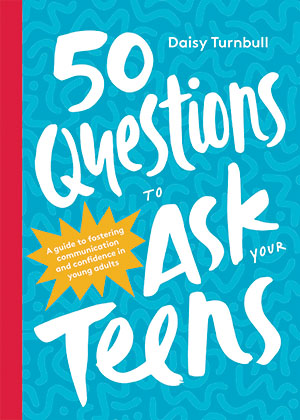Healthy relationships for teens means knowing when to get out, so be sure to teach your kids to recognise these 9 relationship red flags.
Each week in Australia, a woman is killed by a current or past domestic partner. Domestic violence is not always physical violence, and it is less and less likely to be. The silent killer in Australia (and globally) is coercive control in relationships. Defining coercive control is difficult because, although it very much fits a pattern, it presents a slightly different experience for every victim.
In Australia the government is trying to criminalise coercive control, and has created this definition: “Patterns of abusive behaviour designed to exercise domination and control over the other party in a relationship”. But there is concern that this definition can be misunderstood.
I would love to say this is not an issue teenagers need to worry about, because clearly they’re not living with their partners—but, in fact, girls aged 16–25 are the group at the highest risk of being victims of coercive control. So let’s talk about it—with both our daughters and our sons, because anyone can be a victim of coercive control, and many people who do control their partners don’t know they are doing it.
9 red flags young people need to be aware of in any relationship (and parents, too):
Jess Hill, in her book See What You Made Me Do (which I implore you all to read), wrote that one of the most shocking things survivors say when coming out of coercive control relationships is how it all happened like it came out of “the perpetrator’s handbook”. As though the steps are written down on a scrap of paper for perpetrators to hand to each other, memorise and enact.
Coercive control, in fact, is not passed on through generations but built into our identity and the problems with masculinity in our society at this very long moment.
If you want your teen to enjoy a healthy relationship, teach them to look out for these 9 warning signs.
1. Love bombing

Love bombing goes beyond infatuation and flowers. It is an intensity in affection that moves incredibly quickly. The “I love you”s flow. There is so much love, so much affection, that you feel incredibly adored and whole with this person. While there can be other indicators and red flags, this one, when done well, can camouflage all the others.
In fact, this first step in coercive control is what victims think back to longingly in rationalising later behaviour, saying to themselves, and to others, “It wasn’t always like this, they used to be so loving, I’m sure it will sort out soon.” Victims tend to yearn for a return to this first step when things get bad.
2. Isolation from friends and family
This is where a strong relationship with your teen is so important. If your connection is based on strong foundations, it is harder for your teen to be isolated. Isolation doesn’t just come in the form of “your mum is a whackjob, I don’t want to have lunch with your family today”. It might be that the partner makes it difficult for your teen to see their friends. They might say your teen’s friends don’t mesh well with theirs, for whatever reason. They might say a friend should be a “solo friend” who your teen sees on their own, and then ensure there is never time to see them.
Conversely, they may try to take over friendships by asking to be included in group chats, then trying to stop that friendship from continuing except under their eye. This happens slowly. It happens incrementally, and the victim is the frog in the pot. They do not realise they are being boiled.
3. Controlling movements
Some might think that when your teen is living in your house, controlling movements might be a bit, er, boring, but a lot of this happens online. Checking when someone has been online on a chatting/social media app, or getting alerts whenever they tweet or post online are forms of surveillance that can tell someone exactly what another is doing.
This can then lead to having clear data that can be used in arguments, and to gaslighting: “I know you were online because I saw you post on Instagram at 3 pm, but you didn’t reply to my message at that time, so clearly you’re having an affair.” The victim is then on the back foot, forced to justify not responding to a text, which then establishes the power balance for the rest of that day or a longer period of time.
Apps such as Find My iPhone or Find My Friends are often used by girls to check their friends are okay when they are out, and I have not been on a first or second date without sharing my live location with a friend. But these apps that are designed to keep us safe can also keep us very controlled.
4. Invasions of privacy
Invasions of privacy can go hand in hand with controlling someone’s movements. They can also be part of love bombing. “He likes me so much he wants us to share our locations with each other.”
Again, a lot of this is much easier to do online than it was 30 years ago, and is becoming even more so. Sometimes this is perpetrated in ways that can appear coincidental, such as becoming friends with your friends, or finding new points of contact that embed the person in your life further.
5. Financial control

Financial control is not hugely likely in the teenage years but, to prevent it from occurring down the track, it’s important to talk to your teen about developing financial independence. Be sure both members of a couple are equally transparent with each other about finances. As your teen might move into a more serious and “adult” relationship, have conversations with them around their own financial independence, and being honest about any debt they and their partner might have.
6. Humiliating/degrading behaviour
This is generally the first red flag anyone sees, but it happens quite far down the line. This might be a joke at your expense, references to weight or intellect—and these are the ones that happen in public.
Remember, what happens in public is often a tenth of what happens in private. In positive psychology it is often said that it takes five positive comments to make up for each negative one. If your partner is making one or two negative comments a day—small niggles or “jokes”—you’ll be like a heat-seeking missile for compliments. You may also return to the person who insulted you to find those compliments. This can be the foundation of gaslighting (see below).
In the case of degrading comments, the gaslighting will be something along the lines of “Why are you always looking for validation? You are so high maintenance.” This can take an enormous toll. When someone is no longer receiving a daily put-down, they start to recognise compliments as the mood-boosting gift they are meant to be, rather than emotional filler.
7. Gaslighting
This is when someone makes you question your own reality, and makes you think there must be something wrong with you rather than something wrong in your relationship with them. For example, your partner might deny that something happened, even though you know it did, or say that you are imagining something that you know was real. This can then lead to you thinking that you are lucky to be with the person, who still loves you despite your own insecurities (that they created). This will also lead to a huge amount of rationalisation, and wishing the relationship could go back to how it was (during the love bombing, which we know was all part of the process).
Psychologist Collett Smart explains gaslighting in further detail in the video below.
8. Threats and manipulation
Threats and manipulation are often used by teenagers. I have heard students speak about how partners or friends have threatened to spill a huge secret, hurt themselves or kill themselves if their partner doesn’t do what they ask or doesn’t agree to stay with them. I have heard parents say they know these threats are generally bluffs, but that their teen is scared about them, and rightly so. These are scary things to go through.
When I was a teenager I received a threatening letter from a boyfriend saying he would kill himself if I didn’t stay with him. The moment I told my parents about it, a weight lifted because they knew exactly what to do.
If your teen ever communicates that they are receiving threats or manipulative texts, let them know there will be no judgement, and that you are there to support them. A lot of this will happen online. If you are aware that your teen is receiving any threats, you have several options, including confronting the family of the perpetrator if you know them, working within and between the schools, or talking to the cops. You have more control of this situation than you may think. It does not escalate beyond your control as quickly as you might expect.
9. Physical violence and destruction of property
This can happen in all types of relationships. With physical violence, which is often a part of coercive control, there is almost always a cycle of violence. At first everything is fine, and then there is a build-up and the victim starts feeling like they are walking on eggshells. Eventually there will be a crisis stage, with a lashing out or episode of physical violence. This will very quickly be followed by a great apology, then—in what’s known as the honeymoon phase—the love bombing starts all over again.
You can help your teen to have a healthy relationship
It is important to remember that with a lot of the above red flags steps, victims think they want to do the things they are doing, like sharing their location or not seeing their friends, because they have been coerced into it, or because it is easier not to have the fight. They cannot tell you the moment they decided to share all their passwords with their partner, because that moment never happened—it was a mutual decision.
If you think your teen is in an unhealthy relationship, then the question to ask them is this: “How would your partner feel if they knew we were having this conversation?” After more than three years at Lifeline, I can tell you the answer is never “They’d be fine with it.” Once your teen has admitted the relationship is unhealthy, you can start planning with them.
I hope you never do, but one in four women aged over 15 have experienced physical or sexual violence at the hands of a partner, so there is a real chance that your teen, or a friend of theirs, will go through this.
If you or someone you know has experienced sexual assault, domestic or family violence, contact 1800RESPECT (Australia) | It’s Not OK (New Zealand)
Find out more about Red Flag Radar: A Relationship Self-Assessment, a simple, free guide designed by psychologists to help you reflect on your relationship and spot signs of manipulations, coercive control and trauma bonding.

This is an edited extract from 50 Questions to Ask Your Teens: A guide to fostering communication and confidence in young adults by Daisy Turnbull, published by Hardie Grant Books, RRP $24.99, available in-stores nationally.
How helpful was this article?
Click on a star to rate it!
4.1 / 5. 9
Be the first to rate this post!
Daisy Turnbull
Related posts
Subscribe
Receive personalised articles from experts and wellness inspiration weekly!

